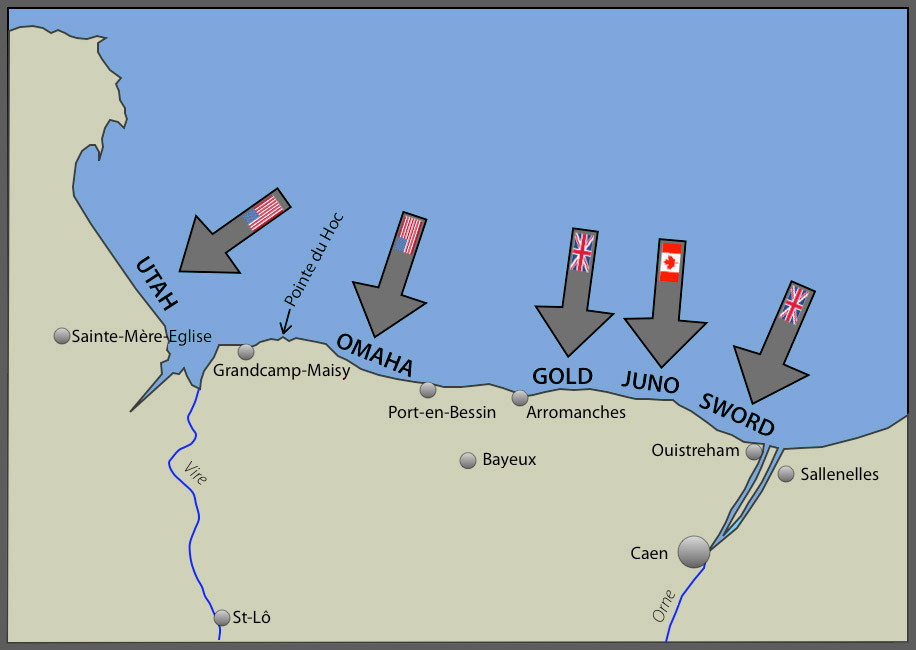According to the video created by PBS, D-day was one of the most complex operations in military history which required significant planning and the use of sophisticated weaponry.
 |
| Source: http://mstecker.com/images/Europe/france2011n/map-d-day2d.jpg |
The allied troops would run into many obstacles, many they could overcome, but there were a few that caused quite a few other issues. For example, the vessels would run into what they called the Devil's Garden. The Devil's Garden was located right on the shore and was made to prevent ships from getting closer to the beach. To avoid these obstacles the vessels were planned to arrive during low tide.
However, an obstacle they could not avoid was Hitler's Buzzsaw, or MG-34. At the time, it fired twice the rate of any other weapon on the planet. Another setback they faced was low cloud cover. The low cloud cover made it hard for the bombers to see. Since they didn't want to bomb any of the vessels or their own people they held off on dropping the bombs. However, every half-second they waited to drop the bombs they were a 100 feet off their original target. The bombers' job was to help take out the tanks on Omaha beach, but since they missed by a great amount the troops had an even harder job than they already had. Despite the issues they faced D-day was made a success on June 30th, 1944, when the Allies got full control over Normandy.
FUTURE RESEARCH: How did the bombing of Pearl Harbor affect U.S. involvement in the war?
However, an obstacle they could not avoid was Hitler's Buzzsaw, or MG-34. At the time, it fired twice the rate of any other weapon on the planet. Another setback they faced was low cloud cover. The low cloud cover made it hard for the bombers to see. Since they didn't want to bomb any of the vessels or their own people they held off on dropping the bombs. However, every half-second they waited to drop the bombs they were a 100 feet off their original target. The bombers' job was to help take out the tanks on Omaha beach, but since they missed by a great amount the troops had an even harder job than they already had. Despite the issues they faced D-day was made a success on June 30th, 1944, when the Allies got full control over Normandy.
FUTURE RESEARCH: How did the bombing of Pearl Harbor affect U.S. involvement in the war?
No comments:
Post a Comment